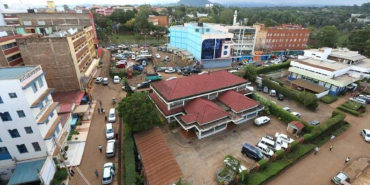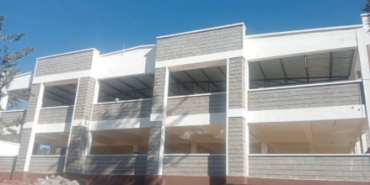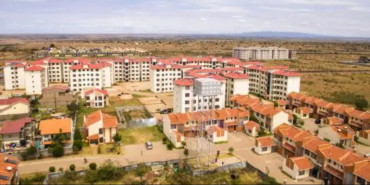European Bank Supports Kenya’s Affordable Housing with Green Investment

Kenya is facing rapid urban population growth and a severe shortage of affordable housing.
In response, the European Investment Bank (EIB) has committed €21.5 million to the IHS Kenya Green Housing Fund, an initiative focused on developing sustainable and energy-efficient homes for low- and middle-income families. The fund seeks to address both the urgent housing demand and the broader challenges of climate change.
With additional support from other equity partners, the fund has reached a total capitalisation of €83.4 million. This strong financial backing signals market confidence in the fund’s long-term prospects. The initial investments are being directed towards three pilot projects in Nairobi, aimed at delivering 664 residential units built to high environmental standards.
One of the key developments is the “Muzi Stawi” complex located in Garden City. Construction began earlier this year, with completion expected by late 2025. The project will provide over 200 one- and two-bedroom rental apartments, designed to offer affordable living within a sustainable commercial rental model. This approach reflects a balanced strategy that meets both social needs and environmental goals.
According to recent census data, more than half of Kenyan households now live in urban areas, many in informal settlements lacking basic infrastructure and services. Rising property prices and poor urban planning have intensified the housing crisis, underlining the need for innovative and inclusive urban development strategies.
Edward Claessen of EIB Global, which oversees operations in Eastern Africa, reaffirmed the bank’s commitment to improving urban living standards while supporting environmentally sustainable growth.
He stresses the importance of pairing financial investment with technical expertise to ensure local partners, such as IHS Kenya, can achieve effective and lasting results. A central element of the fund’s approach is its focus on green building certification, in line with Kenya’s climate resilience targets. Energy-efficient housing designs are intended to reduce utility costs for residents and minimise environmental impact.
The initiative is guided by the belief that sustainable housing should be accessible to all segments of society, not only to higher-income groups. Kioi Wambaa, Managing Director of IHS Kenya, describes the fund’s mission as one that aims to “redefine what affordable housing can be.”
By 2030, the fund plans to deliver 4,000 high-quality, environmentally sustainable homes. Strategic partnerships will be essential in ensuring these developments are tailored to the specific needs of local communities. With ten additional projects planned in Nairobi and Kiambu counties, the IHS Kenya Green Housing Fund is poised to play a transformative role in shaping the future of urban housing in Kenya.








Add new comment